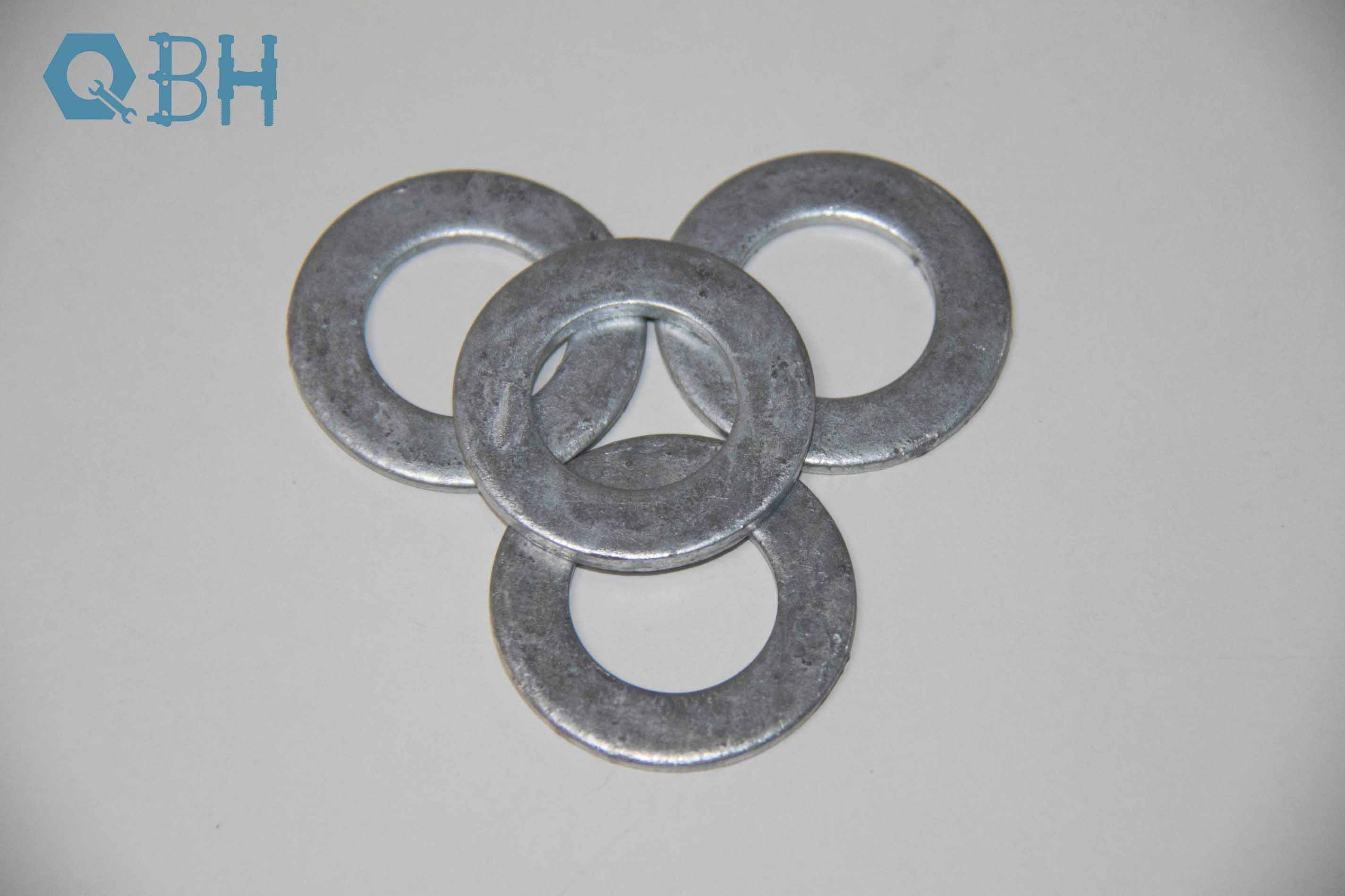What Makes Steel Washers Essential for Reliable Fastening Solutions?
2025-09-04
In modern engineering, construction, and manufacturing, steel washers play a critical role in ensuring secure, durable, and reliable fastening. From large-scale infrastructure projects to precision machinery, steel washers are indispensable components that protect surfaces, distribute loads, and enhance the overall performance of fastened joints. Understanding how they work, their different types, and their key specifications is essential when selecting the right washer for your application.
What Are Steel Washers and Why Are They Important?
Steel washers are thin, flat, circular components placed between a nut, bolt, or screw head and the surface being fastened. While they may seem like minor accessories, their role in fastening assemblies is crucial. They enhance durability, improve load distribution, and protect materials from potential damage caused by high-pressure tightening.
Primary Functions of Steel Washers
-
Load Distribution:
Washers prevent localized stress by evenly distributing the load exerted by fasteners, reducing the risk of surface deformation. -
Surface Protection:
By acting as a barrier between the fastener and the material, washers prevent scratches, dents, and cracks. -
Vibration Resistance:
Certain types of steel washers, like spring washers, absorb shocks and vibrations, ensuring bolts remain tight in dynamic environments. -
Corrosion Protection:
When manufactured from stainless or coated steel, washers protect against environmental damage, extending the lifespan of the assembly.
Common Industries Using Steel Washers
Steel washers are widely used across multiple industries due to their versatility and mechanical strength:
-
Automotive manufacturing
-
Aerospace engineering
-
Construction and infrastructure
-
Heavy machinery and industrial equipment
-
Marine applications
-
Electrical and electronic assemblies
By selecting the appropriate type and grade, engineers can ensure fastening stability and long-term performance.
Types of Steel Washers and Their Applications
Not all washers are created equal. Steel washers are available in various designs and materials to meet specific functional requirements. Choosing the correct type can significantly impact the safety, reliability, and efficiency of your fastening solution.
A. Flat Washers
The most common washer type, flat washers, provide a smooth bearing surface and distribute load evenly.
-
Use Case: Ideal for general-purpose fastening.
-
Applications: Furniture assembly, home appliances, and light construction.
B. Spring Washers
Also known as split lock washers, these are designed to prevent fasteners from loosening due to vibration or thermal expansion.
-
Use Case: Ensures consistent tension in dynamic environments.
-
Applications: Automotive engines, rotating machinery, and heavy equipment.
C. Fender Washers
These have an extra-large outer diameter compared to standard washers, offering greater surface coverage.
-
Use Case: Perfect for thin sheet materials that require increased load distribution.
-
Applications: Roofing, sheet metal fabrication, and HVAC installations.
D. Lock Washers
Lock washers are engineered to resist rotation and maintain secure fastening under extreme conditions.
-
Use Case: Provides anti-loosening features in high-vibration environments.
-
Applications: Railway systems, aerospace components, and offshore platforms.
E. Structural Washers
Thicker and stronger than standard washers, structural washers are designed for heavy-duty applications.
-
Use Case: Handles extreme loads and forces.
-
Applications: Bridges, skyscrapers, and large-scale industrial facilities.
Technical Specifications of Steel Washers
When selecting steel washers, understanding their technical specifications ensures compatibility, safety, and durability. Below is a comprehensive table highlighting key parameters:
| Specification | Description | Typical Range / Options |
|---|---|---|
| Material | Type of steel used | Carbon steel, alloy steel, stainless steel |
| Grades | Defines mechanical strength | SAE Grade 2, Grade 5, Grade 8, A2, A4 |
| Outer Diameter (OD) | Measured across the washer’s outer edge | 5 mm to 100 mm |
| Inner Diameter (ID) | Fits the bolt or screw shank | 3 mm to 90 mm |
| Thickness | Impacts load-bearing capacity | 0.5 mm to 10 mm |
| Surface Finish | Enhances corrosion resistance and aesthetics | Zinc-plated, black oxide, galvanized, polished |
| Standards | Ensures compatibility and quality | DIN 125, ISO 7089, ASME B18.22.1 |
| Hardness | Indicates material durability | HV 100 – HV 350 |
Choosing the right combination of size, material, and finish can significantly influence the performance of the washer in your specific environment.
How to Choose the Right Steel Washer for Your Application
Selecting the right washer involves considering several factors to achieve optimal fastening performance. Here's a step-by-step guide:
Determine Load Requirements
-
For light-duty tasks, standard flat washers are sufficient.
-
For heavy-duty or structural applications, choose hardened or structural washers.
Assess Environmental Conditions
-
For outdoor or marine settings, stainless steel washers offer superior corrosion resistance.
-
In high-heat environments, select washers designed for thermal stability.
Match Standards and Compatibility
Ensure the washer complies with industry-specific standards (e.g., DIN, ISO, or ASME) and matches the fastener size accurately.
Consider Anti-Loosening Features
-
Opt for spring or lock washers in high-vibration applications to prevent bolt loosening.
Steel Washer FAQs
Q1: What is the difference between stainless steel washers and carbon steel washers?
A: Stainless steel washers offer superior corrosion resistance and are ideal for outdoor or moisture-rich environments. Carbon steel washers, on the other hand, provide higher strength and cost efficiency, making them suitable for indoor applications where corrosion is less of a concern.
Q2: How do I know which washer thickness to choose?
A: Washer thickness depends on the application’s load requirements and the fastener size. For heavy-duty assemblies, thicker washers provide better load distribution and durability, while thinner washers are suitable for light fastening tasks.
Steel washers are essential components in any fastening system, offering durability, stability, and performance across a wide range of industries and applications. By understanding their types, specifications, and functions, you can ensure reliable fastening solutions that stand the test of time.
At QBH, we specialize in manufacturing high-quality steel washers that meet international standards and diverse industrial needs. Whether you require flat washers, lock washers, or custom-engineered solutions, our products deliver unmatched reliability and precision.
If you’re looking for premium-grade steel washers tailored to your project’s specifications, contact us today to discuss your requirements and discover how QBH can support your success.





